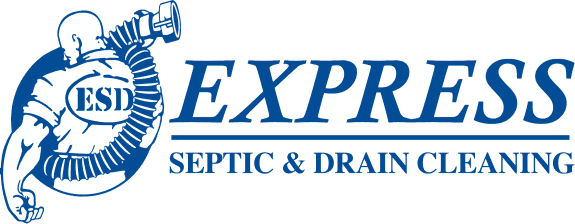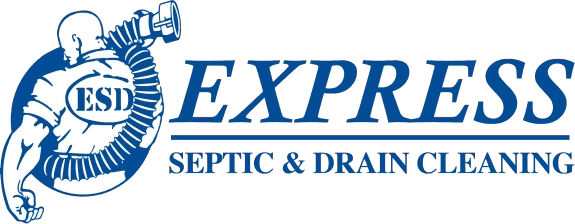Septic systems are quite a bit more complicated than municipal sewage systems and as such require more maintenance. A septic system works by breaking down solid waste and treating wastewater so that it can be safely released into the ground surrounding the leach field. While the wastewater flows out of the tank, any solids remain behind. This is why septic tanks need to be periodically pumped to remove the solids. One question we often get asked is whether you need to do anything special to the septic tank after it has been pumped. If you have recently had your tank pumped or need to do so in the near future, here is everything you need to know about caring for your tank after.
The Importance of Bacteria for the Health of Your Septic System
Bacteria is the lifeblood of your septic system and is what allows it to work properly. When solid waste enters the tank, the bacteria work to break it down. This forms a sludge that settles at the bottom of the tank. As new solids and wastewater enter, the solids sink to the middle of the tank and rest on top of the sludge layer. The wastewater remains on top and is released out into the leach field every time more water enters the tank.
If the bacteria weren’t there to break down the waste, it would quickly start to accumulate. Too much solid waste inside the tank can make the septic system not work properly and could cause sewage to back up inside your drains and plumbing fixtures. The problem can also cause the tank to overflow and allow solids to enter into the leach field. This can clog the leach field pipes and prevent the system from properly treating the wastewater.
The only way to overcome these issues is to have the tank pumped out so that there is again enough room for the waste. This is done using a powerful vacuum truck that sucks out all of the sludge, solids and wastewater from the tank. As long as the bacteria inside the tank is healthy, it will continue to break any solids down so that they take up less space.
If everything is working correctly, you usually won’t need to have your septic tank pumped more than once every three to five years. However, it may be necessary to pump your tank every two or so years if you have lots of people that use your septic system every day. The general rule of thumb is that the system should be pumped whenever the sludge and solid waste fills more than 25% of the tank.
Caring for Your Septic System After Pumping
When your septic tank is pumped, much of the bacteria is also removed. As a result, many people worry that their system will no longer function properly due to the absence of bacteria. However, this simply isn’t true. Some bacteria will always remain inside the tank after pumping. Also, human waste contains more than enough bacteria to fully replenish the tank and ensure it continues to work properly. In fact, the best thing you can do to care for your septic tank after pumping is to immediately start using it again since this will add more bacteria back into the system.
However, you should also take steps to make sure that you don’t kill the bacteria inside the tank. Bleach, drain cleaner and other chemicals can easily kill off some or all of the bacteria. Not only that, but these chemicals can remain inside the tank for a long time and prevent any new bacteria from growing and reproducing.
This is why the only thing that you should really ever put into a septic system is toilet paper and human waste. The greywater that comes from showering, doing laundry and washing the dishes is also fine, but this is really the limit.
Washing grease, fat, oil and food particles down the drain can easily cause clogs in your sewage lines, leach field or the septic tank inlet and outlet or baffles. Paper towels, cotton balls, flushable wipes, feminine hygiene products and other solids should also never go into your septic system. Toilet paper is designed to almost instantly break down into tiny pieces as soon as it goes down the toilet, and this is especially true of septic-safe toilet paper. However, the water and bacteria generally won’t be able to break down these other solids. This means that they will take up much more space. They are also much more likely to cause your system to become clogged.
Are Enzyme Treatments Necessary for My Septic System?
Many septic system owners believe that they need to use an enzyme treatment in their tank after it has been pumped. Enzyme treatments are specially formulated products that contain a high concentration of beneficial bacteria. As we already said, simply using your septic system in the correct way, i.e. flushing waste down the toilet, will provide all the bacteria the system needs to function properly. Nonetheless, adding an enzyme treatment isn’t a bad idea as it will help kick start the system and increase the rate at which the bacteria break down waste.
There are also other times when enzyme treatments are definitely a good idea. Let’s say that you have a vacation home with a septic system that you only use for a few months in summer or winter. If the system goes for a long period without being used and no new waste is added to the tank, the bacteria will eventually die from not having anything to feed on.
In this situation, putting an enzyme treatment into the system after it has sat unused will replenish the supply of bacteria and ensure that the system works as it should. You may also want to add an enzyme treatment before you stop using your septic system just to make sure that there is plenty of bacteria in the tank.
Enzyme treatments are also recommended for situations where the bacteria have been killed off. This typically happens because of putting lots of cleaning products, bleach or antibacterial soaps into the septic system. If you use these products often, you may want to consider monthly enzyme treatments. If not, the waste may quickly start to accumulate due to a lack of bacteria.
Unfortunately, there is really no way for you to know if the bacteria are healthy and if your septic system is working as it should be. This is why you should watch out for any signs of an issue, such as sewage backups, slow drains or sewage smells around the septic tank or leach field. If the ground around the tank or leach field is soggy or has standing water, these are also obvious signs that your system isn’t working as it should.
If you need your septic tank pumped or any other septic service, you can count on the team at Express Septic & Drain Cleaning. We specialize in septic system inspections in Nampa, Boise and the surrounding areas, and we can repair any problems with your tank or leach field. We also offer enzyme treatments, maintenance, septic system installation and more. To schedule an appointment to have your septic tank pumped or any other service, give us a call today.



